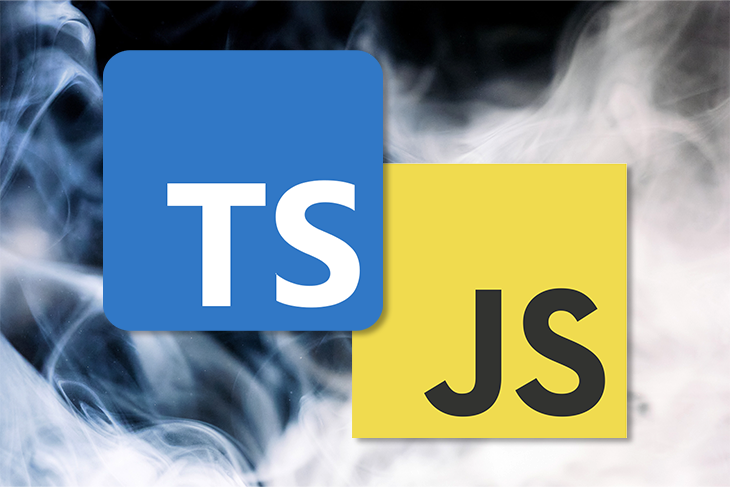TypeScript vs. JavaScript: Debunking the Hype—Is TypeScript Worth It, or is JavaScript with JSDoc a better choice?

Introduction
As the JavaScript ecosystem continues to evolve, the adoption of TypeScript has been a subject of debate and scrutiny. Developers often question whether TypeScript truly addresses their needs, and whether it introduces more complexities than it solves. In this article, we will delve into the multifaceted landscape surrounding TypeScript, exploring different perspectives and shedding light on interesting points that challenge conventional wisdom.
JavaScript's Loosely Typed Nature: A Blessing or a Curse?
One prevailing argument against TypeScript is that JavaScript's loosely typed nature rarely poses significant problems for experienced developers. While some individuals may have been fortunate enough to avoid issues stemming from this characteristic, it is crucial to consider various factors that influence this perception. For example, working in small teams or on personal projects may minimize the potential challenges of dynamic typing. However, in larger teams and complex codebases, TypeScript can offer valuable benefits in terms of code maintainability, collaboration, and catching potential bugs early in the development process.
- While experienced developers may have had minimal issues with JavaScript's loosely typed nature, it is important to consider that TypeScript can significantly improve code maintainability and catch potential bugs early, especially in larger teams and complex codebases.
- TypeScript's static type checking adds value beyond just catching bugs; it also enhances collaboration by providing clear and explicit interfaces, making it easier for developers to understand and work with each other's code.
The Burden of Tooling and Workflow Integration
Critics of TypeScript often highlight the substantial investment required to incorporate it into existing workflows. They argue that the additional time spent on static type checking detracts from productive coding. It is true that adapting to TypeScript may involve a learning curve, but it is important to recognize that this initial investment can lead to long-term gains. By surfacing potential type-related issues during development, TypeScript reduces the likelihood of runtime errors, ultimately saving time and effort in debugging and maintenance.
- Although incorporating TypeScript into existing workflows may require an initial investment, the long-term benefits of early bug detection and improved code quality can ultimately save developers time and effort in debugging and maintenance.
- TypeScript's integration with linters and unit/integration tests enhances the overall development process, allowing developers to achieve a higher level of code quality and reduce the risk of regressions or hidden errors.
Svelte's Transition: A Paradigm Shift?
TypeScript's popularity surged in the frontend development community, with frameworks like React enthusiastically embracing it. However, recent developments in the Svelte ecosystem offer an intriguing perspective. Rich Harris, a prominent figure in the Svelte community, announced that Svelte would be moving away from TypeScript to embrace plain JavaScript. This decision might be seen as a breath of fresh air by those who have reservations about the mandatory adoption of TypeScript. Svelte's shift presents an opportunity to explore the efficacy of TypeScript in specific contexts and challenges the notion that TypeScript's ubiquity is inevitable.
- Svelte's decision to move away from TypeScript and embrace plain JavaScript challenges the assumption that TypeScript's dominance in the frontend development world is inevitable, encouraging a broader examination of the benefits and drawbacks of using TypeScript in specific contexts.
- Svelte's transition provides an opportunity to evaluate the effectiveness of alternative approaches and serves as a reminder that language choices should be driven by project needs and not solely by industry trends.
Reconsidering the Role of TypeScript in Larger Projects
The AstroJS team's contemplation of transitioning from TypeScript to vanilla JavaScript further deepens the ongoing discussion. The team has identified compile time and runtime performance issues resulting from their TypeScript implementation. The presence of unnecessary runtime code and the potential for naming conflicts indicate that TypeScript's benefits in organizing code may not always manifest as expected. These challenges raise questions about the extent to which TypeScript truly enhances project structure and whether alternative approaches could provide similar benefits without the associated drawbacks.
- The AstroJS team's consideration of transitioning from TypeScript to vanilla JavaScript highlights the potential performance and maintainability challenges that can arise when using TypeScript in complex projects, necessitating careful evaluation of its benefits and drawbacks in each specific case.
- The presence of naming conflicts and the need for additional runtime code in TypeScript implementations raise questions about the extent to which TypeScript truly enhances code organization and whether alternative approaches could achieve similar outcomes with less complexity.
Embracing Thoughtful Decision-Making in Tooling Choices
Ultimately, the debate surrounding TypeScript calls for a more nuanced approach to tool selection. Blindly adopting tools without evaluating their fit for a specific project or blindly following industry giants may hinder both developers and end-users. It is crucial to evaluate the trade-offs and benefits that TypeScript brings to a given context, considering factors such as project size, team collaboration, and long-term maintainability. By making informed decisions and understanding the impact of our choices, we can strike a balance between leveraging the advantages of TypeScript and mitigating potential downsides.
- The TypeScript debate emphasizes the importance of making informed decisions about tooling choices based on project requirements rather than blindly following industry trends or adopting tools without proper evaluation.
- By evaluating trade-offs and understanding the impact of tooling choices, developers can strike a balance between leveraging the benefits of TypeScript for code maintainability and collaboration while mitigating potential downsides and complexities in their specific project context.
Conclusion
The TypeScript debate is far from settled, as it continues to generate discussions, challenges, and reconsiderations within the development community. Rather than viewing TypeScript as a panacea or a redundant addition to the JavaScript ecosystem, it is essential to critically assess its applicability in various scenarios. By understanding the nuances, limitations, and potential benefits of TypeScript, developers can make informed decisions that align with their specific project requirements and ultimately enhance their productivity and code quality.
Sources:



TypeScript is 'not worth it' for developing libraries, says Svelte author, as team switches to JavaScript and JSDoc
by u/ArtemisDimikaelo in programming

Further reading
When searching on Google to read more about the downsides of using TypeScript and the upsides of sticking with JSDoc in JavaScript development, look for articles such as "Exploring the Trade-Offs: The Downsides of TypeScript and the Benefits of JSDoc in JavaScript Development" and "JavaScript vs. TypeScript: Examining the Drawbacks of Type Systems and the Advantages of JSDoc Annotations." These articles delve into the trade-offs and challenges of TypeScript adoption, highlighting why some developers prefer JSDoc in JavaScript projects. Other articles explore the limitations of TypeScript, the flexibility of JSDoc, and present different perspectives on the topic. By delving into these articles, readers can gain a comprehensive understanding of the topic and make informed decisions in their own projects.






